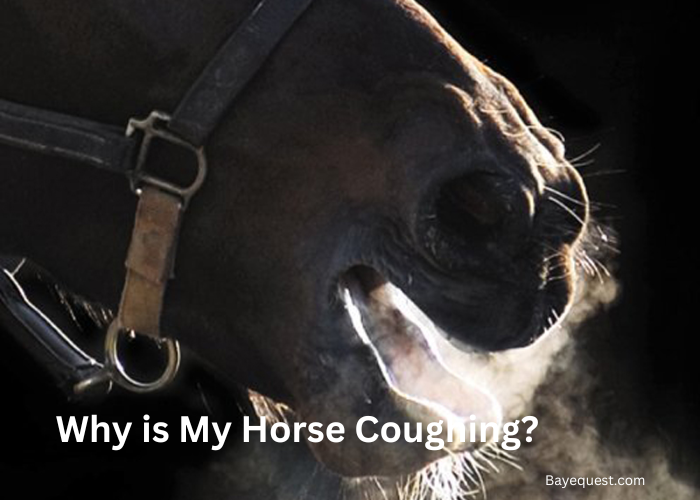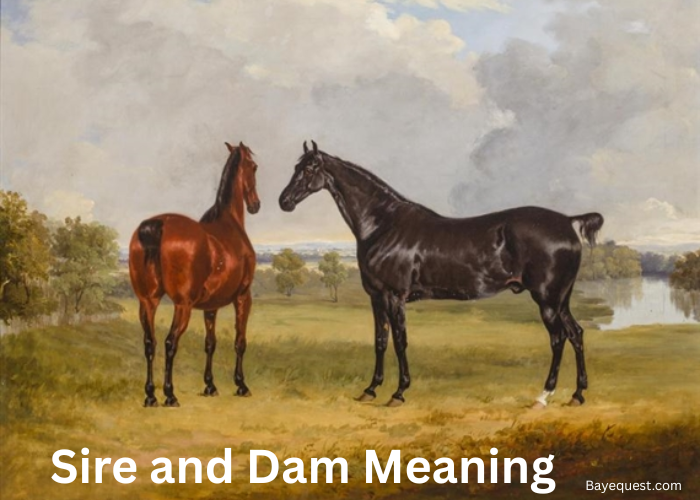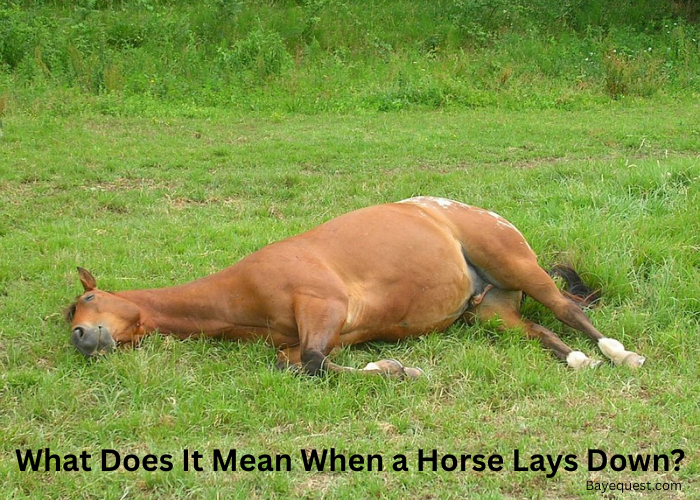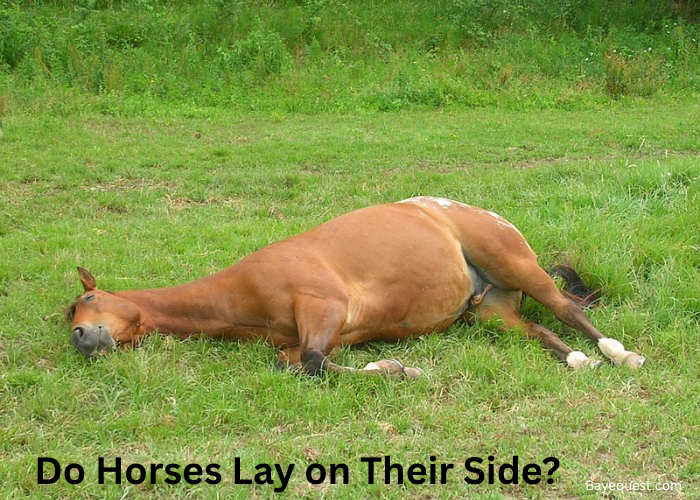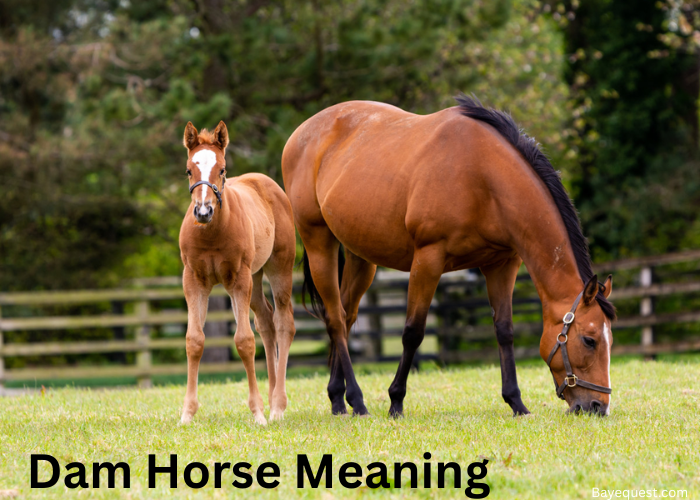A horse’s cough can be more than a simple sound; it’s often a sign of something deeper.
From dusty barns to respiratory infections, coughing tells us a story about a horse’s health.
Sometimes, it’s a harmless tickle; other times, it signals a serious issue needing attention. Knowing the difference matters.
A healthy horse is a happy horse, and understanding what’s behind that cough is key.
Let’s dive into the causes, symptoms, and solutions, so you can help keep your horse breathing easy and feeling great.
Why is My Horse Coughing? Key Takeaway
Horses cough for various reasons, from infections to allergies or environmental irritants. Common causes include equine influenza, asthma, and lungworms. If your horse is coughing persistently, please act fast. Early diagnosis and treatment are key. With the right care, you can help keep your horse breathing easy.
What is Coughing in Horses?
Coughing in horses is a natural reflex. It helps clear the airways of irritants like dust, mucus, or foreign particles.
When a horse’s respiratory system detects these irritants, it triggers a cough to expel them.
In simple terms, the body works to protect the lungs and keep the airways clear.
This reflex begins when nerves in the throat, trachea, or lungs are stimulated.
They send a signal to the brain, which then commands the muscles to push air out quickly.
The result? A forceful exhale, or cough, which helps clear the airway.
Common Causes of Coughing in Horses
Here’s a look at some of the most common reasons why your horse may be coughing and what each might mean for their health.
Equine influenza
Equine influenza is a highly contagious virus that attacks the respiratory lining in horses.
The virus infects the cells of the upper airway, causing inflammation and damage. This leads to a dry, hacking cough as the body tries to clear the airways.
Horses with equine influenza often also develop fever, nasal discharge, and fatigue.
It spreads quickly, especially in young or stressed horses, making vaccination essential for prevention.
Equine Herpes Virus (EHV)
Equine herpes virus, particularly strains EHV-1 and EHV-4, impacts the respiratory tract, leading to inflammation in the nose and throat.
When infected, a horse develops a persistent cough, nasal discharge, and fever. This virus can spread through direct contact or contaminated objects.
EHV-1 can also affect the nervous and reproductive systems, making it a complex virus to manage and control.
Strangles
Strangles is a bacterial infection caused by Streptococcus equi. It primarily affects the lymph nodes around the throat and jaw.
The infection causes these lymph nodes to swell and form abscesses, which put pressure on the airways and trigger coughing.
Additional symptoms include fever, difficulty swallowing, and thick nasal discharge.
Recurrent Airway Obstruction (RAO)
RAO, also known as heaves, is similar to asthma in humans.
It’s an inflammatory condition triggered by dust, mold, or pollen, causing the small airways in the lungs to constrict.
This leads to labored breathing, excess mucus production, and chronic coughing as the body tries to clear the airways.
RAO is more common in older horses and is often managed by improving air quality and minimizing allergens in the horse’s environment.
Exercise-Induced Pulmonary Hemorrhage (EIPH)
EIPH occurs when the tiny blood vessels in the lungs burst during intense exercise. Blood then leaks into the airways, causing irritation and coughing.
This condition is especially common in racehorses or those engaging in strenuous activity.
Horses with EIPH may exhibit poor performance, nosebleeds, or coughing during or after exercise.
Managing this condition involves limiting high-intensity exercise and, in some cases, using medication.
Lungworm
Lungworm, caused by the parasite Dictyocaulus arnfieldi, affects horses that have been in contact with donkeys.
The parasite migrates to the lungs, where it causes inflammation and mucus production.
This results in persistent coughing, especially in young or immunocompromised horses.
Shipping fever
Shipping fever is a bacterial infection, often occurring after long-distance transport.
Confinement, stress, and poor ventilation weaken the horse’s immune system, allowing bacteria to invade the lungs.
The infection often starts in the upper respiratory tract and can progress to pneumonia.
Horses with shipping fever will cough, have a fever, nasal discharge, and may become lethargic.
Ascarids (Roundworms)
Roundworms, particularly in young horses, can migrate through the lungs as part of their life cycle.
When the larvae reach the lungs, they irritate the airway lining, leading to coughing and respiratory discomfort.
Rhodococcus equi Infection
Rhodococcus equi is a bacterium that causes pneumonia primarily in foals.
This bacteria infects the lungs, leading to abscess formation and intense coughing. Infected foals often show difficulty breathing, fever, and nasal discharge.
Pneumonia
Pneumonia in horses is an infection of the lungs caused by bacteria, viruses, or fungi.
It leads to severe inflammation and fluid accumulation in the air sacs, causing labored breathing and frequent coughing.
Horses with pneumonia may also develop fever, fatigue, and a loss of appetite.
Inflammatory Airway Disease (IAD)
IAD is a chronic, low-grade inflammation of the airways, often seen in young performance horses.
The inflammation causes excess mucus and airway sensitivity, leading to intermittent coughing, especially during exercise.
IAD is often triggered by environmental allergens like dust or mold.
Congestive Heart Failure (CHF)
Though rare, congestive heart failure in horses can cause coughing due to fluid accumulation in the lungs (pulmonary edema).
When the heart struggles to pump effectively, blood backs up in the lungs, leading to fluid buildup and respiratory distress.
A horse with CHF may have a chronic cough, labored breathing, and fatigue.
Rhinopneumonitis
Rhinopneumonitis is caused by equine herpes virus strains EHV-1 and EHV-4, which target the respiratory tract.
It results in inflammation and mucus in the airways, causing coughing, nasal discharge, and fever.
Highly contagious, rhinopneumonitis can spread through direct contact, making it a concern in barns with young horses or frequent visitors.
Types of Horse Cough You Should Not Ignore
The riding cough
This cough occurs mainly during or after exercise. It may be a sign of respiratory irritation, often from dust, poor air quality, or underlying airway inflammation.
If your horse coughs frequently while riding, it could indicate respiratory stress or lung inflammation.
The mucus flying cough
This is a forceful cough that produces visible mucus or nasal discharge.
It signals infection or airway irritation, due to allergies, respiratory disease, or pneumonia.
Mucus discharge is the body’s way of clearing excess mucus and irritants.
However, persistent coughing with mucus can mean an infection or inflammation that needs veterinary attention.
The post transport cough
This cough appears after long-distance travel, usually due to “shipping fever.”
Stress and poor ventilation during transport can compromise the respiratory tract, leading to bacterial infection or pneumonia.
This condition can progress quickly, causing fever, fatigue, and heavy nasal discharge.
The no reason cough
A seemingly random cough with no obvious trigger can point to mild airway irritation from allergens or dust.
The frequent “no reason” coughing may also signal early-stage respiratory disease or sensitivity.
If the cough persists without an identifiable cause, have a vet examine the horse for subtle respiratory issues.
The toddler cough
A cough commonly found in foals, often due to infections like Rhodococcus equi pneumonia or roundworm migration (ascarids).
Foals are more vulnerable to respiratory infections as their immune systems develop.
A persistent cough in young horses can indicate bacterial or parasitic infection.
The foodtime cough
This occurs while eating, often due to choke or irritation in the throat. It can happen when a horse gulps food too quickly or consumes dry or dusty feed.
If persistent, this type of cough may indicate dental issues, esophageal problems, or even a condition that affects swallowing.
Diagnosing the Cause of Cough
Diagnosing a horse’s cough requires specialized procedures to identify underlying respiratory issues accurately.
The procedures include:
Radiographs
Radiographs, or X-rays, capture detailed images of a horse’s chest and lungs.
They help detect signs of pneumonia, abscesses, or lung masses that may be causing the cough.
Radiographs can reveal areas of fluid, inflammation, or abnormal lung structure.
Ultrasound
An ultrasound uses sound waves to create images of the lungs and pleural space (area around the lungs).
It’s particularly useful for detecting fluid buildup, abscesses, and surface abnormalities.
Ultrasounds can reveal more detail on the outer lung and pleural surfaces than radiographs.
PCR Assays
Polymerase chain reaction (PCR) assays detect the DNA of specific pathogens in respiratory samples.
By amplifying small amounts of pathogen DNA, PCR tests can identify infections like equine herpes virus, influenza, or bacterial agents.
PCR is highly sensitive and specific, making it essential for diagnosing viral and bacterial infections.
Endoscopy
An endoscope is a flexible tube with a camera that is inserted into the horse’s nasal passage to examine the airways and trachea directly.
This allows veterinarians to see inflammation, mucus, foreign bodies, or structural abnormalities.
Endoscopy also allows for sample collection from the respiratory tract for further testing, such as bacterial culture.
Transtracheal Wash (TTW)
A transtracheal wash involves collecting fluid samples from the trachea.
A sterile solution is injected, and then the fluid is suctioned out with any cells or pathogens present.
This test provides samples from the lower airways, which can be analyzed to identify infections.
Bronchoalveolar Lavage (BAL)
BAL is a procedure where fluid is introduced and then retrieved from the lungs, specifically from the bronchioles and alveoli.
This method provides samples from deep within the lungs and is used to assess inflammatory or allergic conditions, like recurrent airway obstruction (RAO) or equine asthma.
Chest sounds
Listening to chest sounds with a stethoscope helps assess airflow and detect abnormalities like wheezes, crackles, or dullness in specific lung areas.
Abnormal sounds can suggest fluid, inflammation, or airway obstruction.
Chest sounds provide a first indication of respiratory health and help guide further diagnostic tests.
Treatment of Horse Cough
The common treatment options for managing a horse’s cough are:
Medications
Depending on the underlying cause, medications may include antibiotics for bacterial infections, antiviral drugs for viruses, or antifungal treatments for fungal infections.
Anti-inflammatory drugs, such as corticosteroids, help reduce inflammation in the airways, especially in cases of RAO or equine asthma.
Bronchodilators can also help open the airways, making breathing easier.
Environmental management
Improving air quality is essential, especially for horses with respiratory sensitivities.
Dusty bedding, hay, and poorly ventilated stalls can worsen respiratory issues.
Switching to dust-free bedding, soaking hay, and ensuring good ventilation helps reduce airborne irritants.
Antiparasitic treatment
If the cough is due to lungworms or ascarids, a deworming protocol may be necessary.
Dewormers targeting these parasites will help eliminate the cause of respiratory irritation and prevent reinfection.
Hydration and steam therapy
Proper hydration thins mucus, making it easier to expel from the respiratory tract.
Steam inhalation or using a nebulizer with saline solution can also help moisten and soothe the airways.
Isolation for contagious conditions
If the cough is due to a contagious disease, isolating the affected horse helps prevent the spread to others.
Strict hygiene practices, such as disinfecting stalls and equipment, are crucial to containing respiratory infections like strangles or equine influenza.
Supportive care and rest
Rest allows the horse’s body to heal and recover, especially after infections like pneumonia or shipping fever.
Limiting exercise during recovery prevents respiratory strain and aids the healing process.
Prevention of Horse Cough
Preventing coughs in horses is crucial to ensuring their long-term health.
In this section, we’ll explore effective strategies to prevent coughs in horses.
Regular vaccination
Ensure your horse is up-to-date on vaccinations for common respiratory viruses, including equine influenza and equine herpesvirus.
This helps reduce the risk of viral infections that can lead to coughing and more serious respiratory issues.
Maintain clean, dry stalls
Regularly clean and disinfect stalls to prevent the buildup of dust, mold, and bacteria.
Use dust-free bedding and consider adding fans for better ventilation.
Keep the environment clean to help reduce respiratory irritants that could trigger coughing.
Improve air quality
Provide ample ventilation in barns and stalls to allow fresh air to circulate.
Poor air quality can contribute to conditions like RAO. Avoid storing hay or feed in poorly ventilated areas to prevent dust accumulation.
Soak hay and feed
Soaking hay helps reduce the dust particles that can irritate the respiratory system.
If your horse is sensitive, soak hay for several minutes before feeding to minimize respiratory stress.
Routine deworming
Schedule regular deworming treatments to prevent parasitic infections like lungworms or ascarids that can lead to coughing.
Also work with a vet to create a deworming program based on your horse’s age, health status, and environment.
Minimizes stress during travel
When transporting your horse, ensure proper ventilation in the trailer and limit travel time if possible.
Stress and poor ventilation during transport can lead to shipping fever, a common cause of post-transport cough.
Quarantine new horses
When introducing new horses to the stable or farm, quarantine them for at least 2 weeks to prevent the spread of contagious respiratory diseases.
Monitor their health closely for signs of infection or cough before mixing them with other horses.
Provide proper nutrition
A balanced diet supports overall health, including respiratory health.
Make sure your horse has access to high-quality feed and fresh water, and consider adding supplements that support immune function.
Limit exposure to infected horses
Minimize exposure to horses with known respiratory illnesses.
If a horse in the stable is coughing or showing signs of illness, isolate it immediately and consult a vet to prevent the spread of infections.
7 Questions to Consider About Your Horse’s Cough
Here are some important questions you need to ask yourself when your horse coughs:
1. When does the coughing occur?
Pay attention to when your horse coughs. Does it happen during exercise, after feeding, or at rest?
Coughing that occurs after exercise may suggest a respiratory condition like RAO, while coughing after eating could indicate choking or throat irritation.
2. Where does the coughing happen?
Is the coughing more frequent in certain areas, such as the stable, during transport, or in specific weather conditions?
If the cough intensifies in dusty or poorly ventilated environments, it may point to allergies or irritants in the air, such as mold or hay dust.
3. How much does the horse cough?
Is the coughing occasional or persistent? Frequent or heavy coughing could indicate an underlying infection, like pneumonia, or a chronic condition such as asthma.
A single cough here and there is less concerning than consistent or severe coughing.
4. Does anything come out of the nose?
Examine whether there’s nasal discharge accompanying the cough.
Clear, watery discharge may indicate an allergy or viral infection, while thick, yellow, or green mucus suggests a bacterial infection or more severe condition, such as pneumonia.
5. Is there anything else?
Look for other symptoms that could indicate a more serious illness. Are they showing signs of fever, lethargy, loss of appetite, or labored breathing?
These could be indicators of a respiratory infection or disease, like equine influenza or strangles.
6. Are there other horses or people coughing around?
Check if other horses or even people in the barn are coughing. If multiple horses are coughing, this could indicate a contagious disease, such as equine influenza or strangles.
In such cases, isolating the affected horse and seeking veterinary attention is crucial to prevent the spread.
7. How do the throat and lungs sound?
Use a stethoscope to listen to your horse’s chest. Are there wheezes, crackles, or any unusual sounds?
Abnormal chest sounds may suggest fluid in the lungs, airway obstruction, or an infection that needs immediate attention.
Interesting read: How Big are Equine Lungs?
FAQs
Can worms cause coughing in horses?
Yes, certain types of worms, such as lungworms or ascarids, can cause coughing in horses. These parasites invade the lungs and airways, leading to irritation and inflammation.
Why is my horse dry coughing?
Dry coughing in horses can be caused by various factors. These may include allergies, dust, or irritants in the environment, such as moldy hay or poor ventilation. It can also be a symptom of conditions like RAO or equine asthma. Dry coughing can also occur after exercise or as a result of exposure to cold air.
Conclusion
Understanding why your horse is coughing is key to keeping them healthy. From infections to environmental irritants, the causes are varied.
Early detection and proper treatment can make a world of difference in your horse’s recovery.
Don’t ignore persistent coughing—address it early to ensure your horse’s comfort and well-being.
With the right care, your horse can breathe easy again. Now, check out our article on flehmen response in horses to understand why they curl their lips and how it helps them gather important scent information.




